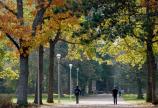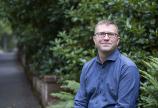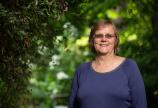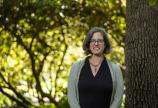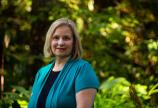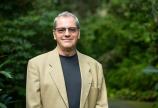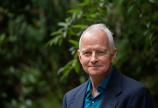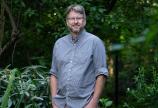Royal Society of Canada recognizes seven UVic researchers
Humanities, Science, Social Sciences, Human and Social Development, Engineering
- Tara Sharpe
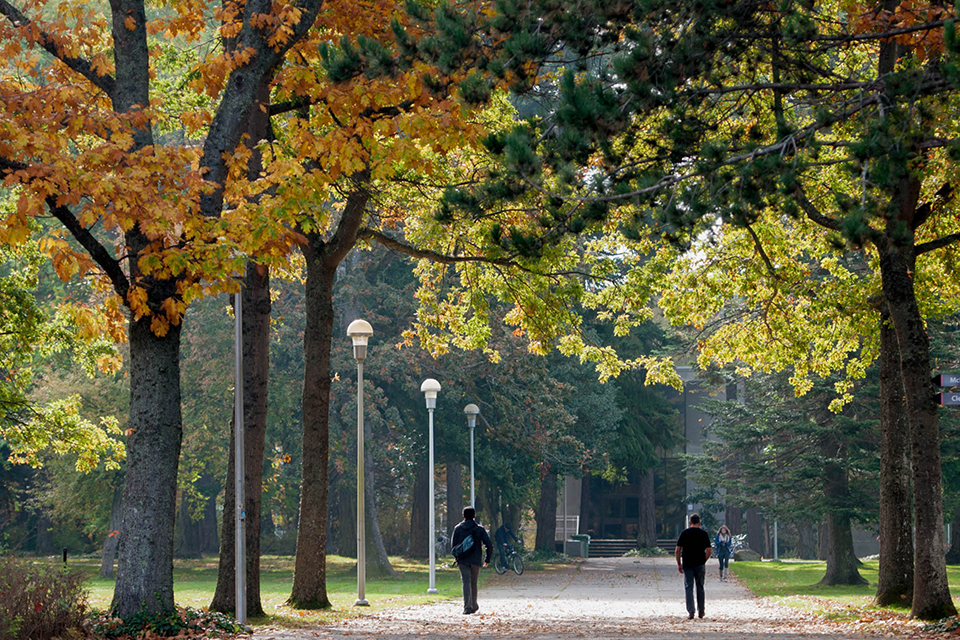
From palliative care and supramolecular chemistry to experimental poetry, seven University of Victoria researchers, each of whom is making a unique and lasting contribution to the world, are being celebrated today by the Royal Society of Canada (RSC) with the country’s highest academic honour.
From the fields of humanities, science, social sciences, engineering, and human and social development, Trevor Lantz (environmental studies) joins the RSC as its newest member to the College of New Scholars, Artists and Scientists while Cornelia Bohne (chemistry), Cynthia Milton (research and innovation), Kelli Stajduhar (nursing), Marc Lapprand (French), Michael Masson (psychology) and Ray Siemens (English, computer science) are elected to the RSC as new fellows.
UVic is 12th overall in the world for its impact in all 17 areas identified by the United Nations as Sustainable Development Goals (SDGs). The work of the seven scholars recognized nationally today by the RSC highlights the importance of the SDGs for the world, with their achievements helping to echo a sense of purpose and innovative progress for all places on our planet.
Trevor Lantz, Environmental Studies
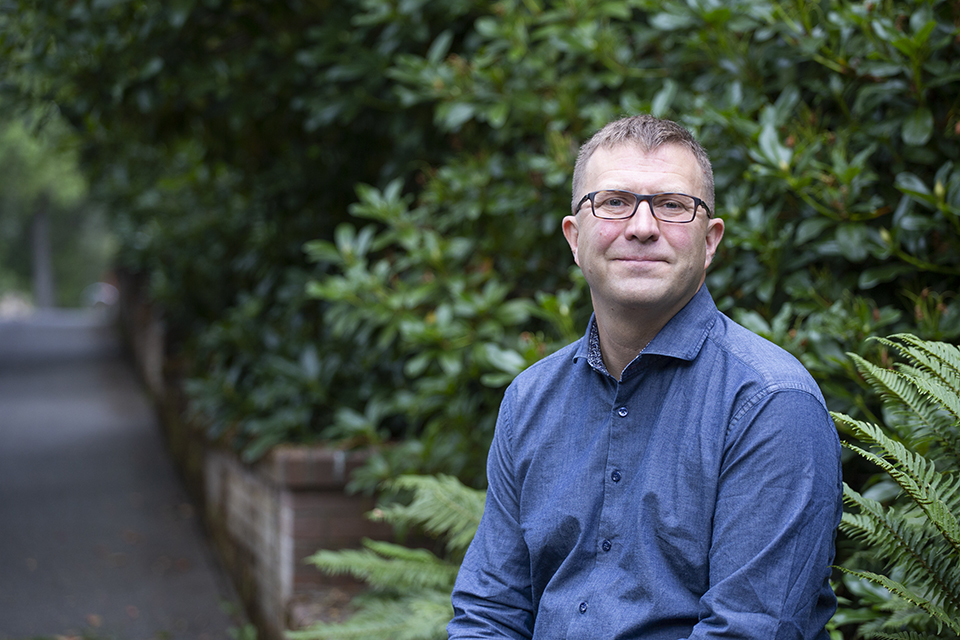
Lantz. Credit: Photo Services
Trevor Lantz, an ecologist and ethnobiologist, leads a research program rooted in Northern partnerships and examines environmental change in the western Arctic. Using a combination of field studies, remote sensing and collaboration with Gwich’in and Inuvialuit experts, Lantz’s team identifies what makes northern ecosystems sensitive to change, and explores how these transformations are impacting northern communities.
By identifying landscape sensitivity to processes like permafrost thaw, lake drainage, tundra fire, range shifts and vegetation change, his research is making a meaningful contribution to northern decision-making and climate change adaptation.
Temperature increases in the Arctic have been four times faster than the global average and landscape transformation is happening in real-time. Identifying vulnerable ecosystems and predicting what Arctic landscapes will look like in 30 to 50 years is critical to inform local and regional responses.
—Trevor Lantz, Royal Society of Canada member
Cornelia Bohne, Chemistry
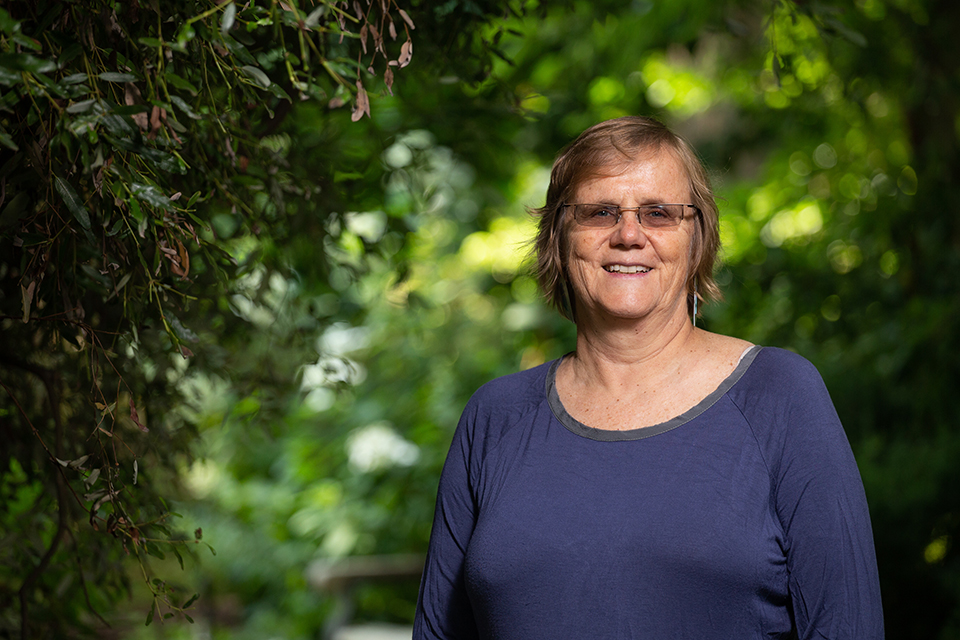
Bohne. Credit: Photo Services
Cornelia Bohne’s love of chemistry started when, as a child, she asked her grandfather to draw something on her blackboard. He responded with a chemical equation involving water and CO², and she was hooked.
“I looked at it and said, ‘Wow, I would like to know as much as he does,’” recalls Bohne, who was born in Brazil and joined UVic in 1992 after arriving in Canada in 1987.
A renowned researcher who was made Fellow of the Chemical Institute of Canada in 2011, Bohne is a world leader in supramolecular chemistry—the study of large structures held together by forces other than chemical bonds. At UVic, she has developed specialized techniques to understand the dynamics of supramolecular systems, creating breakthrough, fundamental knowledge for future advances in drug research.
“We figure out how we can measure really fast reactions in complicated systems using lasers. Others will apply this knowledge, for example, to construct better drugs, that then will be more effective in our bodies,” explains Bohne, who in 2016 was given the Inter-American Photochemical Society Award in Photochemistry in recognition of outstanding contributions to the advancement of the photochemical and photophysical sciences made during the previous ten years.
In my work, I'm driven by the fact that I can continue being curious about the world. I learn all the time in the research. I'm putting together puzzles that no one else has put together before.
—Cornelia Bohne, Royal Society of Canada member
Cynthia Milton, Research & Innovation / History
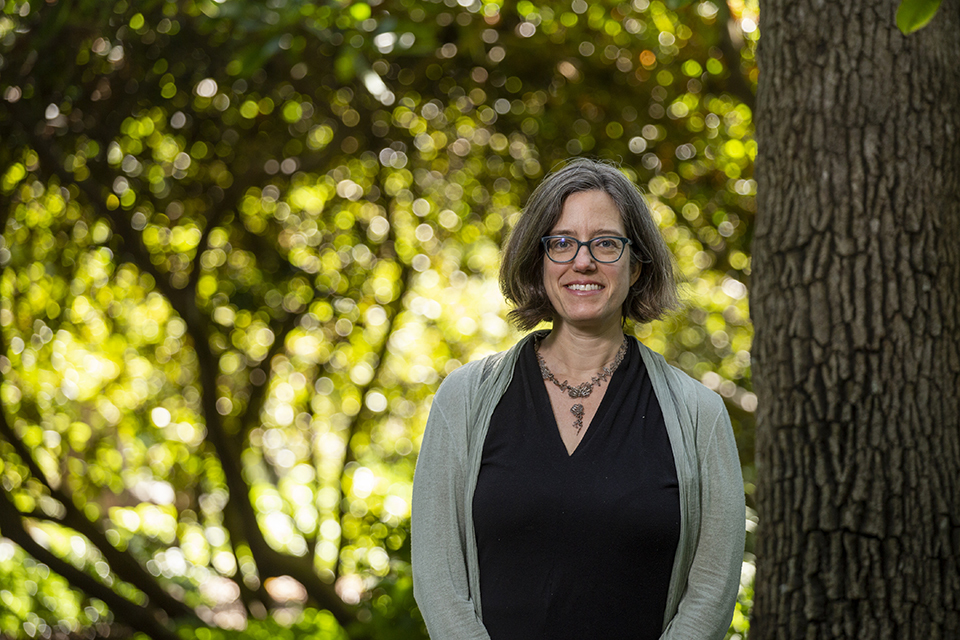
Milton. Credit: Photo Services
As an interdisciplinary historian, Cynthia Milton illuminates two distinct yet interconnected fields that are, in fact, not very far in the past: colonialism and racialized social compacts, and historical narratives after state violence. In short, she studies the legacies of political violence and who, in a society, has the power to tell stories about conflictual and contested pasts. Milton pays attention to alternative forms of recounting and listens to the voices that have often been excluded from national narratives. She also studies how dominant groups navigate our present era of post-truth and accountability.
What she has discovered is that the so-called margins have much to teach us about the bigger picture.
Studying power and knowledge in Latin America’s history sheds light on power and knowledge more broadly. So, while much of her work has focused on this region, what she has learned there has provided a lens to understanding elsewhere, including her home. She has recently addressed academia’s and the Royal Society of Canada’s marginalization of Indigenous knowledge.
I try to trace the arc of history. In Canada, as in Latin America, we cannot understand the present without understanding our past. My hope is to better understand past political struggles so we can alter our distribution of power in the present.
—Cynthia Milton, Royal Society of Canada member
Kelli Stajduhar, Nursing / Aging and Lifelong Health
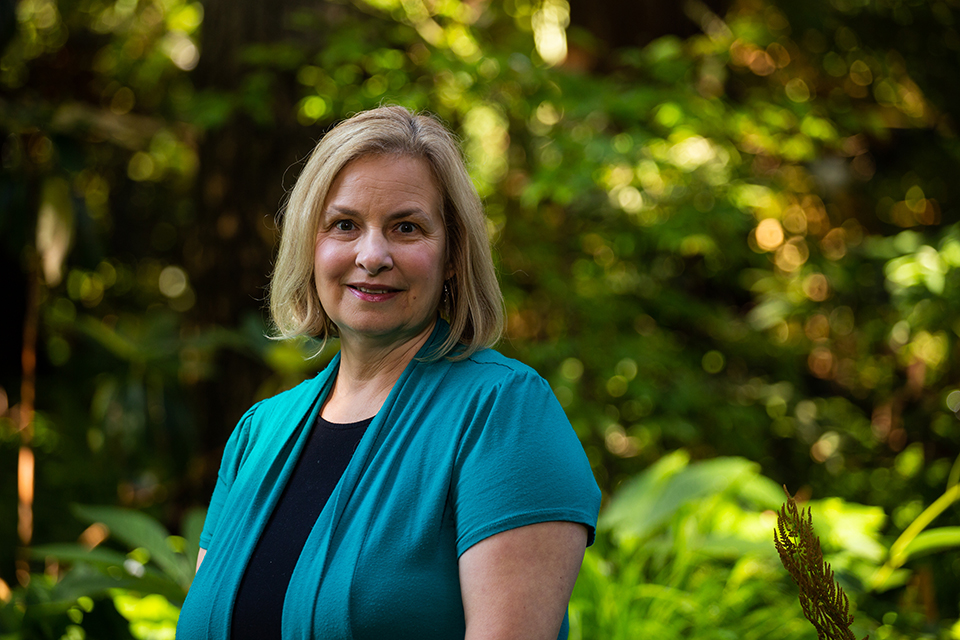
Stajduhar. Credit: Photo Services
Kelli Stajduhar’s internationally renowned work in palliative care is based on a simple premise: everyone should die with dignity. Her research is particularly important for people who have been marginalized in society, and whose experiences in health care have been marred by distrust and stigma.
“They’re invisible populations,” she says. “When we see these people in palliative care, they’re dying of diseases that people who hold privilege in society wouldn’t die from or would have better quality of life and longer length of life.”
A professor in UVic’s school of nursing and a research fellow at the Institute on Aging and Lifelong Health at UVic, Stajduhar was also recently named a Tier 1 Canada Research Chair on Palliative Approaches to Care in Aging and Community Health.
Stajduhar’s research is rooted in the communities she serves. In Victoria, she has pioneered an initiative in which teams of physicians, nurses and outreach workers deliver mobile-and street-based palliative care. But her influence extends well beyond Vancouver Island.
Nationally, Stajduhar heads a community of practice with health professionals in Calgary, Edmonton, Thunder Bay and Toronto who run similar equity-based palliative care initiatives. Internationally, Stajduhar is in demand as a speaker, sharing her research with health workers and scholars in the UK, Sweden, New Zealand, Australia and Belgium.
I've always seen research as an enactment of my nursing practice. We can and must enact justice for people while they are living and when at the end of their life.
—Kelli Stajduhar, Royal Society of Canada member
Marc Lapprand, French and Francophone studies
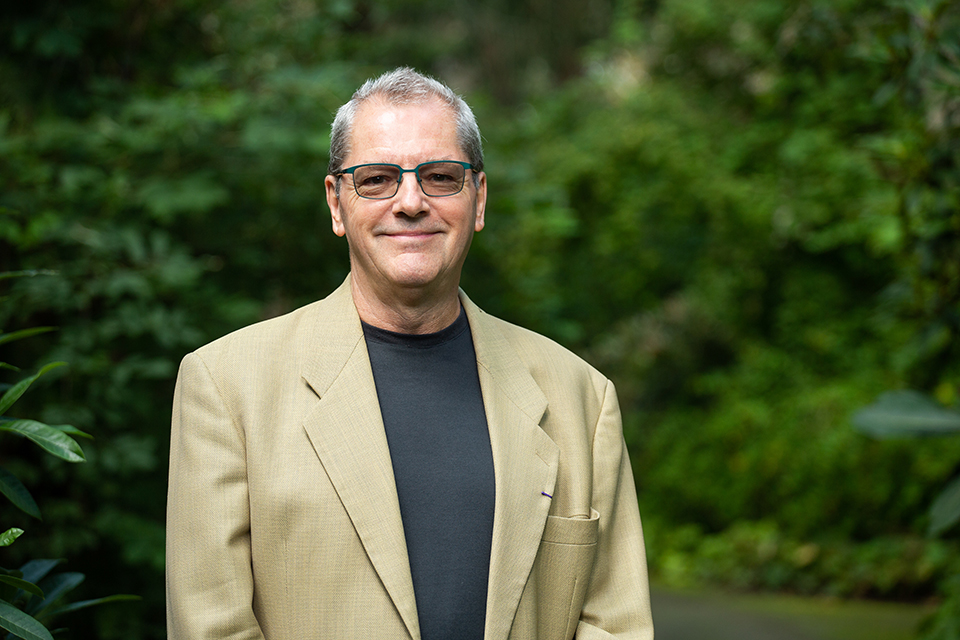
Lapprand. Credit: Photo Services
Marc Lapprand, a French literature modernist who specializes in the life and work of cult figure Boris Vian, is a knight of culture and literature himself. In 2018, Lapprand was made a chevalier of the Ordre des Palmes académiques, an ancient league of academics and teachers. He earned this title, one of France’s highest honours for culture and education, after three decades of research on Vian, a French polymath and inventor born in 1920 whom Lapprand describes as “a blend of Lewis Carroll, Richard Brautigan and James Joyce, if compared to English-speaking writers.”
Vian died young, in 1959. One year later, Oulipo was founded. It is a loosely organized group whose followers liberate literature by tightening the rules and it has been Lapprand’s other scholarly passion, besides teaching, for some 30 years. In 2020, he published a second monograph on the group. He also developed an interest in evolutionary psychology and applying Darwinism to storytelling, with a dossier on the subject published in @nalyses: Revue de critique et de théorie littéraire after a symposium at the 2013 Congress of the Humanities and Social Sciences, held at UVic.
A former chair of UVic’s French department, Lapprand believes in “building bridges” within the Francophone communities and schools, as well as reaching other French-speaking communities—"from near locations to remote places worldwide: a genuine representation of the diversity of the department’s faculty.”
Because the research and experiments of Oulipo [an innovative group of writers and mathematicians] blend mathematical algorithms and literature, there is a rigour behind the text. It’s very liberating. It sounds like a paradox. But it’s not. And there’s a lot of humour. Whenever you play on words and language, humour is never far away.
—Marc Lapprand, Royal Society of Canada member
Michael Masson, Psychology (Professor Emeritus)
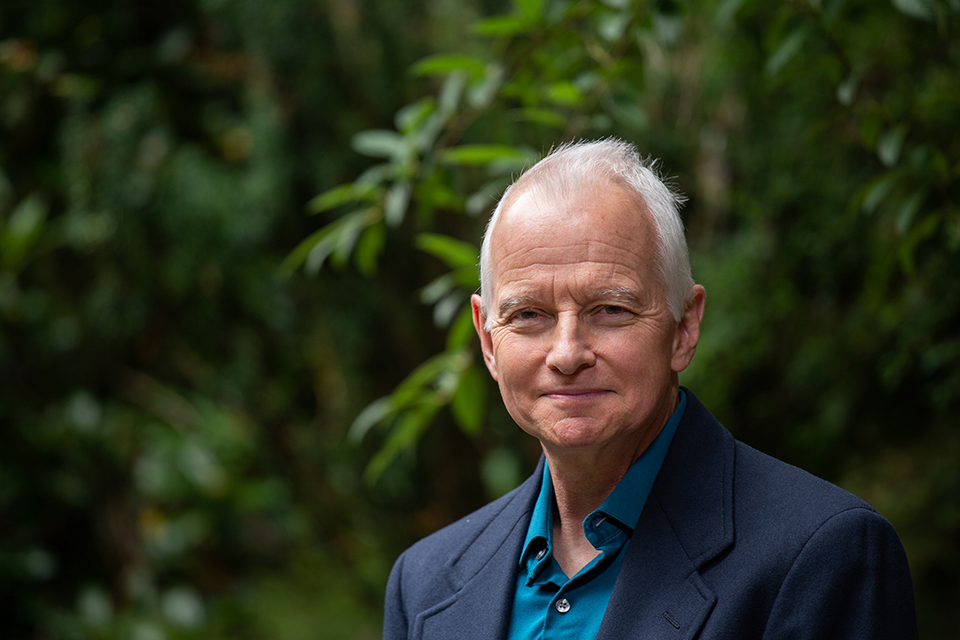
Masson. Credit: Photo Services
Michael Masson, a world leader in the understanding of human cognition, has shown us how to learn and read more effectively and how to wield a teapot—or a scalpel—more safely.
Masson says his election to the Royal Society of Canada “is a thrill that I share with the many dedicated colleagues, both faculty and students, who have collaborated with me in carrying out this work.”
Through this work, Masson has shown how comprehension changes when readers try to increase their speed by skimming, by using speed reading techniques or relying on rapid computer presentation of text. He also examines connections and associated risks between thought and action that underlie everyday skills such as our ability to grasp a teapot and pour a cup, or use a scalpel at the same time as planning which instrument to use next and what to do with it.
But Masson’s interests and impacts go far beyond his own discipline. By championing Bayesian data analysis, Masson has helped researchers in a wide range of fields to assess their data and outcomes more meaningfully.
The research I have done has always been aimed at improving our understanding of the basic mental functions that all of us rely on for daily activities. This kind of knowledge serves as an important foundation for explaining and treating changes in brain function that can occur through injury or normal aging processes.
—Michael Masson, Royal Society of Canada member
Ray Siemens, English / Computer Science
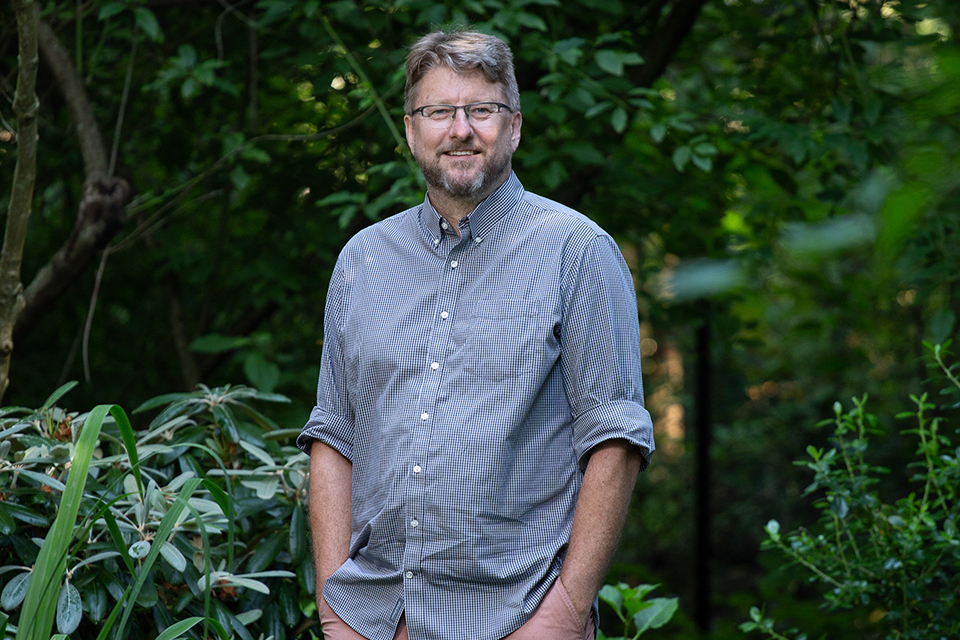
Siemens. Credit: Photo Services
Ray Siemens is renowned for his insights on the history of communication, value of books and future of reading. A leading expert in his field, he says digital humanities “is where humanities meets computing.”
His other research interests are firmly framed in the pages of the past: Siemens studies and teaches early Tudor poetry and Renaissance literature, and literally wrote the book on a young Prince Henry’s poetry (the same “Prince Harry” who became Henry VIII). Here on Vancouver Island, Siemens’ trail-blazing leadership resulted in the establishment of the Digital Humanities Summer Institute, an annual training program which came with him when he joined UVic in 2004. His Electronic Textual Cultures Lab is a digital humanities research group seeking to explore the many questions on the role computers can play in the humanities. And he founded the Implementing New Knowledge Environments partnership.
Formerly UVic’s Canada Research Chair in Humanities Computing and as a Distinguished Professor in the Department of English with a cross appointment in computer science, Siemens continuously contributes to the digital aspect of the humanities, with its societal significance poignantly emphasized during the pandemic with our collective reliance on remote access.
The future of reading is largely a positive extension of what we’ve done in the past—particularly in the context of academic work, where digital possibilities enrich and amplify aspects of our engagement with each other, as academics and among those in communities that our work serves.
—Ray Siemens, Royal Society of Canada member
Learn more
- Read the RSC’s news release on newly elected fellows and members (Sept. 6)
Photos
